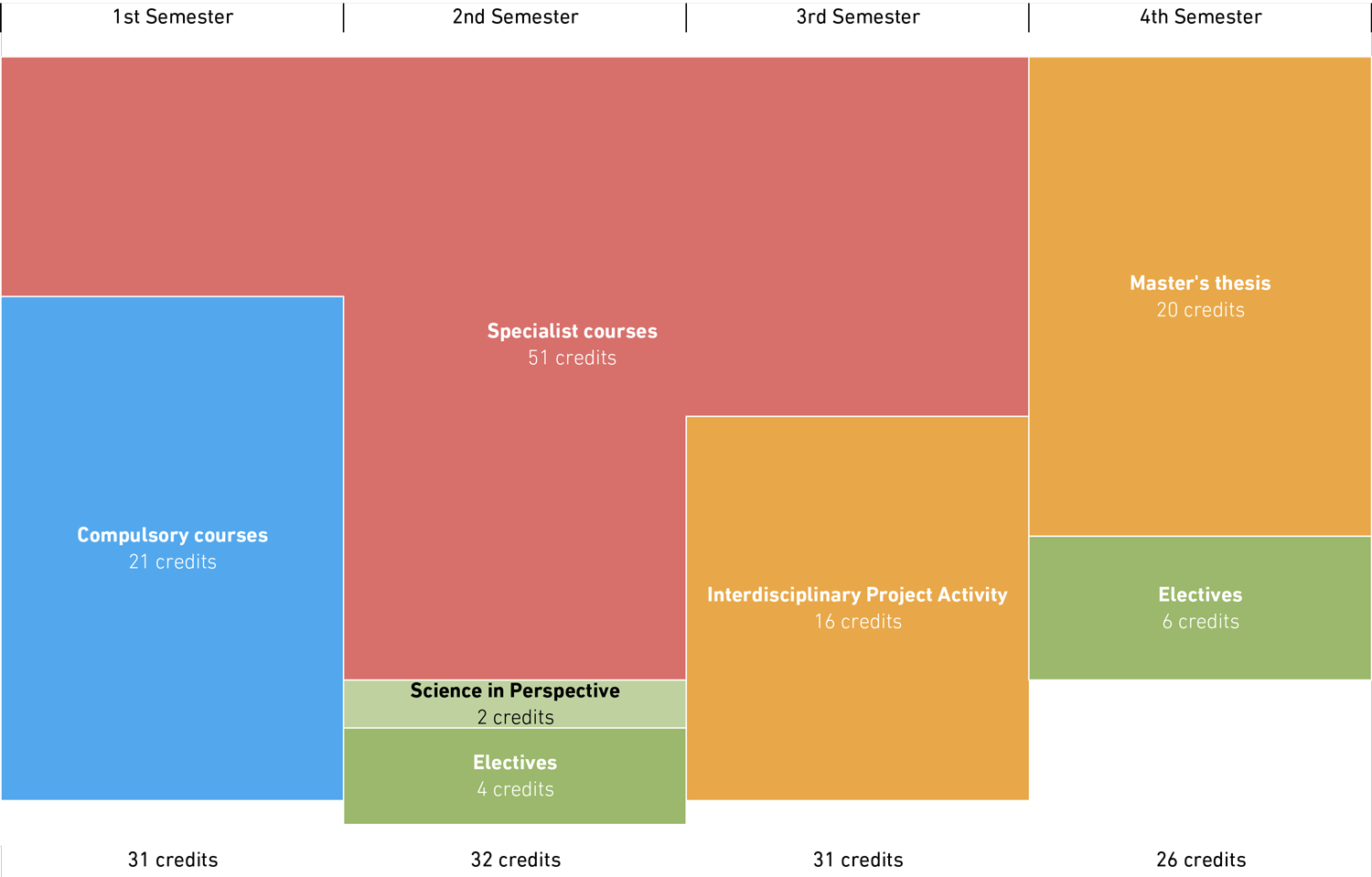Curriculum
For the Master’s degree, students have to acquire a total of 120 credits. The curriculum consists of six categories. In each of these categories, the minimum number of credit points indicated has to be acquired.
Compulsory courses are mandatory for all students of the Master’s degree programme. These serve to generate a common understanding and a common language for the subjects Spatial and Landscape Development, Transport Systems and Behaviour, and Network Infrastructure.
Compulsory subjects are the following:
- Basics of RE&IS (3 credits)
- Infrastructure Planning (3 credits)
- Introduction to the Programming Language R (3 credits)
- Landscape Planning and Environmental Systems (3 credits)
- Spatial Planning and Development (3 credits)
- Transport Systems (6 credits)
If one of the six compulsory courses was already completed at ETH Zurich during the preceding (Bachelor's degree) programme, the Director of Studies may, on request and in consultation with the tutor, approve a different course as a compulsory course.
A reduction in the minimum number of credits required in the compulsory courses is not possible.
Electives broaden specialist knowledge and serve the acquisition of in-depth knowledge in selected areas of expertise. The entire curricula of ETH Zurich and the University of Zurich are open to students for individual selection.
Subjects recommended for the degree programme are listed in the course catalogue under "Electives"
The study programme Science in Perspective is taught by the D-GESS professorships of history, conflict research, literature and cultural studies, economics, development and co-operation, philosophy, political science, psychology, law, sociology and scientific research. SiP courses are also offered in cooperation with the Language Center of the University and ETH Zurich.
All "Science in Perspective" courses are found in the ETH Zurich course catalogue under "GESS Science in Perspective".
All ETH Zurich students must acquire ECTS credits in "Science in Perspective" courses.
Interdisciplinary project work is a key component of the Master’s programme. It is offered once a year in the Autumn semester. Working in groups, students deal with a complex issue that goes beyond subject boundaries. The main aim is to encourage students to consider and plan housing developments, landscapes, infrastructure and traffic in an integrated manner. The project work is coached by the professors on the course.
The Master’s thesis is to be completed within 16 weeks and covers four months of the students’ final semester. The thesis explores a topic taken from one of the three faculties, with individual coaching provided by one of the professors on the course.
To acquire the Master’s degree, certification of at least 120 credits in the corresponding categories is required. Certification within four years of the start of Master's degree studies entitles students to request the Master’s degree.
The following minimum requirements must be met per category:
A maximum of 130 credits are recognised for the Master's degree in the final academic record. The final grade is calculated as the weighted average of all grades listed.
All additional study achievements not required for the degree are listed on a separate page of the final academic record.
Please note that all study achievements completed at ETH Zurich are listed in the final academic record. This includes any fail grades (only the second attempt is listed in cases where performance assessments were repeated); “no shows” (where a student dropped out of or failed to appear at an examination); and the results of additional admission requirements.
Detailed information on subject content, performance assessments, etc. in individual subjects can be found in the course catalogue.

